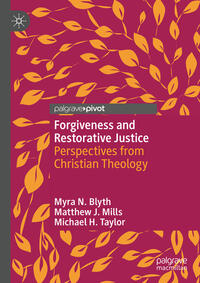
The meaning of ‘forgiveness’ and its role within restorative justice are highly contested. This book offers analysis from practical and academic perspectives within Christian theology, against a rich canvas of related concepts, including victimhood, sin, love, and vulnerability. Critical friends of restorative justice, the authors argue that forgiveness – whether as journey or act, unilateral or mutual, conditional or unconditional – is necessary to achieving a fully restorative resolution to acts of harm. They also suggest that Christianity, with its meaning-giving metanarrative of restoration, and preference for communitarian approaches to justice, may have epistemic value for evaluating and even deepening the theory and practice of restorative justice.